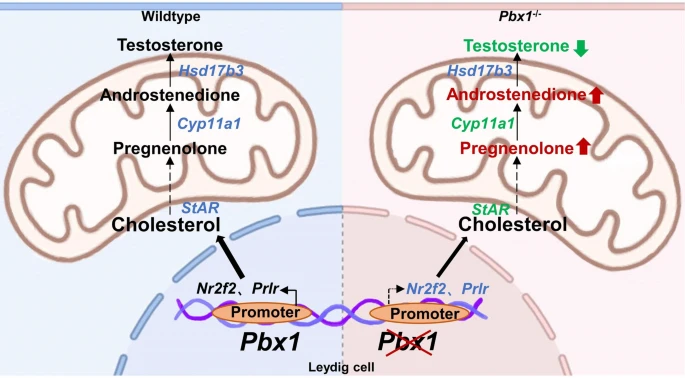Leydig cells are essential components of testicular interstitial tissue and serve as a primary source of androgen in males. A functional deficiency in Leydig cells often causes severe reproductive disorders; however, the transcriptional programs underlying the fate decisions and steroidogenesis of these cells have not been fully defined. In this study, we report that the homeodomain transcription factor PBX1 is a master regulator of Leydig cell differentiation and testosterone production in mice. PBX1 was highly expressed in Leydig cells and peritubular myoid cells in the adult testis. Conditional deletion of Pbx1 in Leydig cells caused spermatogenic defects and complete sterility. Histological examinations revealed that Pbx1 deletion impaired testicular structure and led to disorganization of the seminiferous tubules. Single-cell RNA-seq analysis revealed that loss of Pbx1 function affected the fate decisions of progenitor Leydig cells and altered the transcription of genes associated with testosterone synthesis in the adult testis. Pbx1 directly regulates the transcription of genes that play important roles in steroidogenesis (Prlr, Nr2f2 and Nedd4). Further analysis demonstrated that deletion of Pbx1 leads to a significant decrease in testosterone levels, accompanied by increases in pregnenolone, androstenedione and luteinizing hormone. Collectively, our data revealed that PBX1 is indispensable for maintaining Leydig cell function. These findings provide insights into testicular dysgenesis and the regulation of hormone secretion in Leydig cells.

The link below will guide you to the reading:
https://link.springer.com/article/10.1007/s00018-024-05249-5
